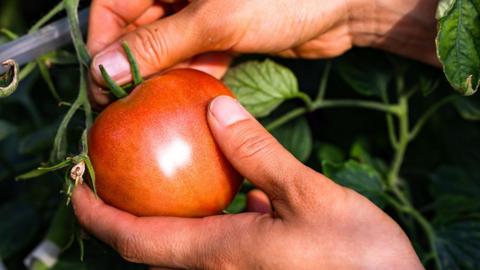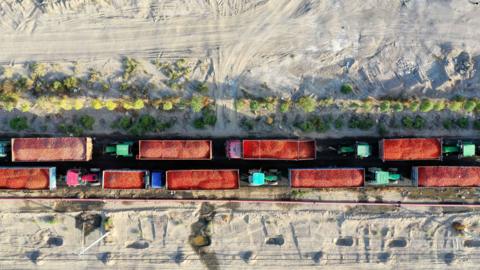One company name repeatedly appeared as a recipient in the data. This was Antonio Petti, part of a group of major tomato-processing firms in Italy. It received more than 36 million kg of tomato paste from the company Xinjiang Guannong and its subsidiaries between 2020 and 2023, the data showed.
The Petti group produces tomato goods under its own name, but also supplies others to supermarkets across Europe who sell them as their own branded products.
Our investigation tested 64 different tomato purees sold in the UK, Germany and the US - comparing them in a lab to samples from China and Italy. They included top Italian brands and supermarket own-brands, and many were produced by Petti.
We asked Source Certain, a world-renowned origin verification firm based in Australia, to investigate whether the origin claims on the purees’ labels were accurate. The company began by building what its CEO Cameron Scadding calls a “fingerprint” which is unique to a country of origin - analysing the trace elements which the tomatoes absorb from local water and rocks.
“The first objective for us was to establish what the underlying trace element profile would look like for China, and [what] a likely profile would look like for Italy. We found they were very distinct,” he said.
Source Certain then compared those country profiles with the 64 tomato purees we wanted to test - the majority of which claimed to contain Italian tomatoes or gave the impression they did - and a few which did not make any origin claim.
The lab results suggested many of these products did indeed contain Italian tomatoes - including all those sold in the US, top Italian brands including Mutti and Napolina, and some German and UK supermarket own-brands, including those sold by Sainsbury's and Marks & Spencer.
But 17 appeared to contain Chinese tomatoes, 10 of which are made by Petti - the Italian company we found listed repeatedly in international shipping records.
Of those 10 made by Petti, these were for sale in UK supermarkets at the time of testing from April-August 2024:

